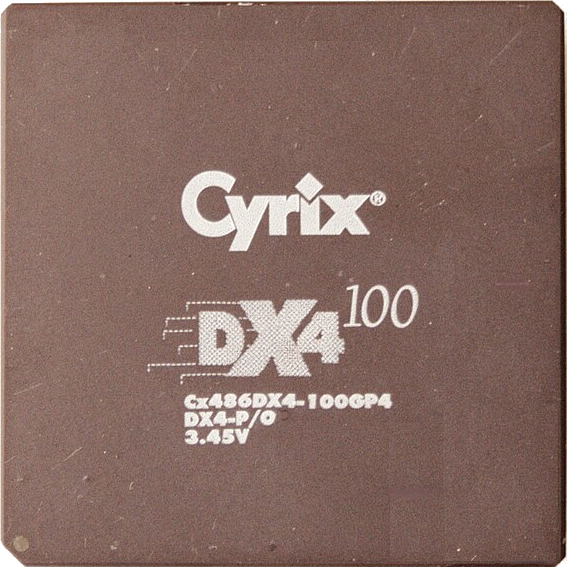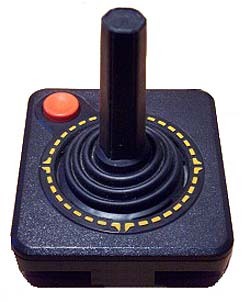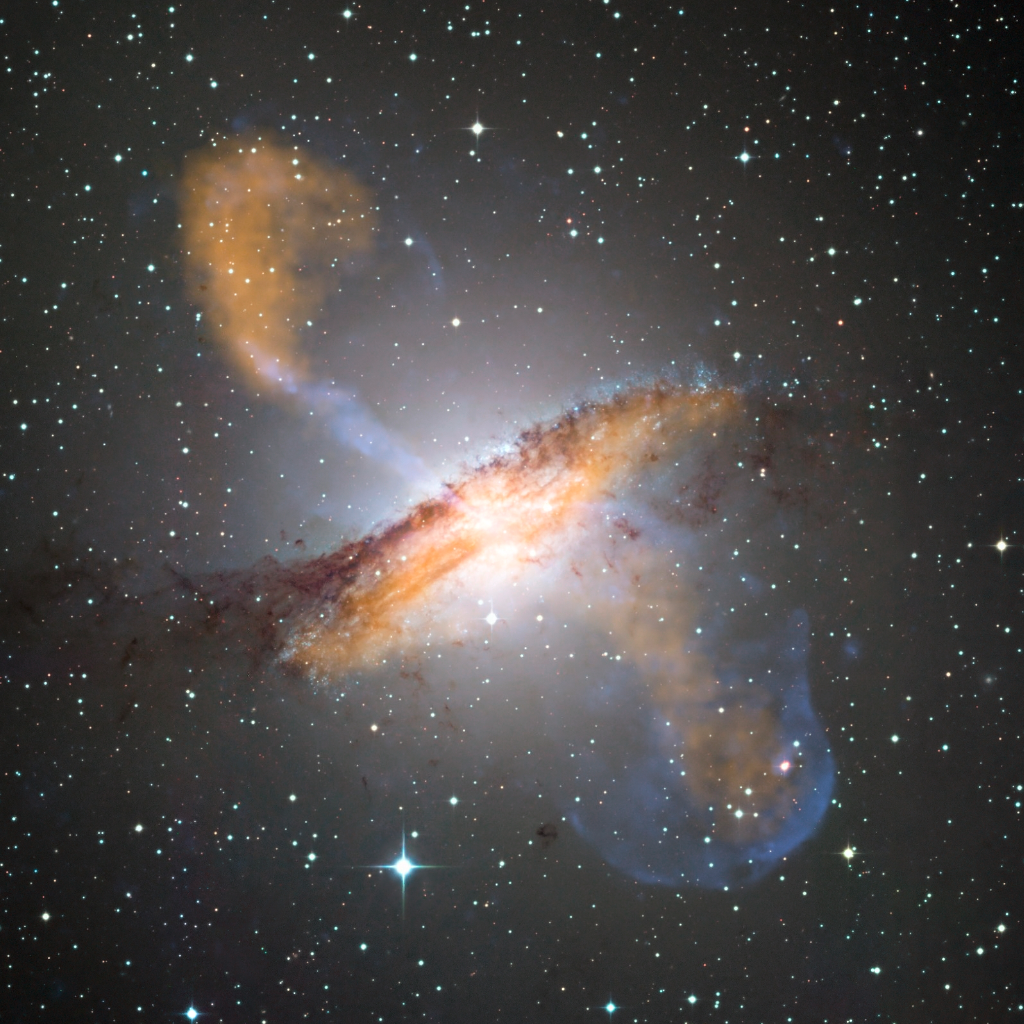Sure, it’s like JPG.
It may not be the newest or best compression ratio, but it works, and even the shittiest old hardware supports it. And I know it won’t whine about licences being missing or some shit.
Most people are archiving in FLAC but the reality is that almost nobody can hear the difference between 320 (or even V0) and FLAC. So in cases where the disk space makes a difference mp3 still makes sense.
You can easily hear the difference if you have good headphones or speakers
I remember reading articles at the time of the last patents running out. Some were so misguided it was hilarious.
They called it the death of MP3! As if patents were good or necessary, instead of restrictive and troublesome for interoperability.
I have boatloads of MP3s and at least they can pretty much be played by all imaginable software and hardware imaginable, and since the patents have expired, there’s no reason not to support the format.
MP3s are good enough for its particular use case. Of course, newer formats are better overall and may be better suited for some applications. (Me, I’ve been an Ogg Vorbis fan for ages now. Haven’t ripped a CD in a while but should probably check out this newfangled Opus thing when I do.)
It’s still my preferred format. Everything can play it. At 256kbit or better it sounds fine for usual listening.
Even at 160kbps, maybe 1/1.000.000 people can recognice a FLAC vs MP3 trying 10 times (continuous) using expensive headphones and players, 320kbps is overkill, I prefer a FLAC and just encode to Opus.
Right now Opus is better and can be played in web browsers, smartphones, YouTube and Netflix are using that for awhile.
No doubt there are many superior codecs. Opus is amazing, we use it for voice and video over IP. But I doubt anything will ever be as universally playable as MP3.
I 100% do. I think mp3 is a good compromise of sound and space. It’s also the format I’m used to. Just like how people swear by physical record. If I’m at a get together and hear mp3 quality, I’m at home.
That being said, I have my absolute favorites in flac for my iPod 5th gen video I rebuilt. The 5th gen’s dac, Wolfson, is a solid little dac for the day and age. Got Rockbox loaded up and I’m ace, but I’ve hard saved all the Apple firmware for every model in case the time came to sell them. Old iPods could be an investment someday and I own every gen in multiples.
Still care about MP3- it’s the bog standard, the thing EVERYthing supports. Like the shitty SBC codec on Bluetooth. I’ve still got tons of MP3s and they aren’t going away anytime soon.
Everything I get new though is high-res FLAC.
… I’m out of the loop. Why don’t people care about mp3s?
Its mostly been superseded by AAC, Opus and FLAC.
Mhmm I haven’t heard of the first two. I still listen to mp3s that I got from the 90s.
You might not have heard of the formats but you’ve definitely listened to them. For example, Youtube has only served audio in aac and opus for years now. Most instant messaging apps also use opus during calls to reduce bandwidth usage. And those are just some big examples. Basically almost any online service has dumped mp3 in favor of aac and opus since they’re better in every way (in the sense that they have better quality at the same bitrate as mp3, so you can reduce the filesize by a lot and still preserve the same audio quality)
Ogg at lower bitrates sounded better than mp3 at the same rate. Consumers dont care, but for a lot of game developers the zero patent risk and higher quality shipping with smaller files made Ogg a great choice at the time.
For me? FLACs are the only way… which reminds me, I wonder I can still convert all the SHN (shorten) lossless files I still have. I should get on that before a converter doesn’t exist.
Apple basically killed any chance ogg had by not supporting it on ipods. Which was unfortunate.
I have thousands of mp3s so I’d say they still matter. As far as audio quality goes I doubt my ears, at least at my age, can tell the difference between them and a lossless format.
Anyone telling you they can hear the difference between a 320kbps MP3 and lossless audio is full of shit, anyway. It’s still a great format for keeping file sizes small, though I prefer ogg these days.
I’m in the same boat: can’t hear any difference.
But, I have GBs of 320k MP3s… is it worth converting to Ogg ?
I’m a big fan ogg opus, but I wouldn’t convert between lossy formats
It’s useful because it’s ubiquitous. Everything that can take in music files supports it.
Is MP3-encoded audio of the best possible quality? No, of course not. But for most people it’s Good Enough, especially if you do most of your listening in a noisy environment. MP3s are to lossless formats what CD was to vinyl for so many years.
A lot of people cant tell the difference between MP3 @320Kbps and a fully lossless FLAC.
All people. 320kbps mp3 is completely audibly transparent under all normal listening conditions. It’s a low-tier audiophile meme to claim otherwise but they will never pass a double-blind test.
A lot of people cant tell the difference between MP3 @320Kbps and a fully lossless FLAC.
MP3 has some disadvantages over more modern formats, regardless the used bitrate. It’s been a long while since I was very interested in audio formats, so I may not be up to date on some newer developments but unless anything major changed, MP3 can’t do truly gapless playback between tracks (used in live albums), for example.
Aren’t there unofficial extensions to mp3 for gappless playback? IIRC you can tag tracks as gappless and many audio players will make them so.
Aren’t there unofficial extensions to mp3 for gappless playback?
Yes and no.
IIRC an MP3 track is divided in fixed-length frames and unless the actual audio matches perfectly with the end of a frame, it’s not possible and that’s why cross-fading plugins for audio players were invented. The padding data is there either way but can be documented in the metadata section of a file.
Last I checked (and that was years ago, so I may be wrong) this approach was never perfect and prone to breaking. It’s an inherent flaw with the format where some form of workaround exists.
That said, for most use cases this is irrelevant.
Audio playback is such a low-demand process, surely a player (e.g.VLC) can spare a thread to line up playback of track 2, a few seconds before track 1 ends? It knows the exact length of the track, why can’t track 2 be initiated when the audio level in track 1 drops to zero (or minus infinity dB) in the last frame?
Workarounds in a specific player don’t negate the fact that the format has limitations.
From what I understand, vinyl and CDs can both output in a range greater than human ears can detect, so the medium isn’t as important as the mastering and the gear being used to listen to the recording.
CDs can, by a very narrow margin, reproduce sounds beyond which the human ear can detect. There’s a theorem that states you can perfectly reproduce a waveform by sampling if the bitrate is double the maximum frequency or something like that, and CDs use a bitrate such that it can produce just above the human hearing range. You can’t record an ultrasonic dog whistle on a CD, it won’t work.
It’s functionally impossible to improve on “red book” CD Digital Audio quality because it can perfectly replicate any waveform that has been band-passed filtered to 20,000 Hz or thereabouts. Maybe you can talk about dynamic range or multi-channel (CDs are exactly stereo. No mono, no 5.1 surround…Stereo.) It’s why there really hasn’t been a new disc format; no one needs one. It was as good as the human ear can do in the early 80’s and still is.
The Nyquist limit?
You need sampling at twice the frequency as a minimum to extract a time domain signal into the frequency domain. It says nothing about “perfect” especially when you’re listening in the time domain.
There is a lot of data in the time domain that impacts sound/signal quality. As others have said though, it probably doesn’t matter without high quality equipment and a good ear.
It’s also good to note that you can train your hearing. A musician or producer or audiophile are going to hear things and qualities you don’t. It’s edge cases though, and generally irrelevant to regular listening.
You definitely can hear the difference between MP3 320 and lower mp3 bitrates though.
It is my admittedly limited understanding that we really can’t do better at digitally recording an audio signal than how red book audio does it, such that the microphones, amplifiers, ADCs etc on the recording end and the DAC, amp and speakers on the playback end are going to be much more significant factors in audio quality.
You need sampling at twice the frequency as a minimum to extract a time domain signal into the frequency domain. It says nothing about “perfect” especially when you’re listening in the time domain.
Yes it does. You can use a higher frequency, but that does not change anything except increase the maxiumum frequency possible. Even with perfect ears and the best equipment, there is no audible (and mathematical) difference to be had.
Everyone who claims otherwise should watch Monty’s explainer videos. I know they are quite old at this point, but everything he explains is still perfectly valid. If that does not convince you, nothing will.
Vinyl is lossy in that any dust or scratches on the record can be heard in the output, so this is only true if you’ve got an absolutely pristine vinyl.
This is what we were all told for years and years- that it was impossible that anyone could hear anything in vinyl that was supposed to be there but that couldn’t be reproduced with digital at cd quality. Then DVD came out And people could genuinely hear the difference from CD quality audio even in stereo. It turns out that dynamic range is limited by the audio sampling rate and the human ear can easily detect a far greater range CD audio supports.
It turns out that dynamic range is limited by the audio sampling rate and the human ear can easily detect a far greater range CD audio supports.
Dynamic range isn’t limited by the sampling rate. It is limited by the resolution, which is 16 bits for the audio CD. With that resolution you get a dynamic range of 96 dB when not using any dithering and even more than that when using dithering. Even with “only” 96 dB that dynamic range is so vast, that there is no practical use of a higher resolution when it comes to playback. I know that the human ear is supposed to be able to handle 130 dB or even more of dynamic range. The thing is, you can only experience such a dynamic range once, afterwards you are deaf. So not much point in such a dynamic range there.
There are good reasons to use a higher resolution when recording and mixing audio, but for playback and storage of the finished audio 16 bits of resolution is just fine.
The original idea behind the superiority of vinyl was that the ambient audio was being recorded directly to the media. Of course, this wasn’t even true when it was first made, as they were using magnetic tape by then to record in analog. However, there is still some merit to the idea that an infinitesimal amount of quality is lost when translating sound waves to digital data.
Most of the actual differences between cd and vinyl, though, can be chalked up to the loudness wars ruining the mixes on cd.
I’d argue you’ve got that backwards; CD is to vinyl what lossless is to .mp3. That said, I know what you mean.
I listen to mp3 all the time. Back in the Napster days I collected a ton of music, but moreover I’m a fan of Old Time Radio from the 30s and 40s, so I accumulated around 10,000 of those shows. More than I’ll ever have time to listen to. Audiophiles may deride the quality level, but I don’t believe in letting perfection be the enemy of good. And even if “computers” - whatever that even means anymore lol - drop support for mp3, there will always be software that plays it as long as there are people with big collections of files they don’t want to take the trouble to convert to something else.
The man with the action packed expense account.
I freaking love old time radio, that stuff is great!
That sounds fascinating. If I were interested in those shows, where would I start? Are there at least some that are easily listenable to on the open internet?
Biggest free download site is probably https://www.oldradioworld.com/
There’s also the Internet Archive - https://archive.org/details/oldtimeradio
If you like sci-fi I highly recommend X Minus One - https://www.oldradioworld.com/shows/X_Minus_One.php
Check out the many OTR Gold podcasts that have the serialized shows as episodes.
Sounds fine at good bitrates, universally supported, small, efficient, everywhere.
Yeah, MP3 is just fine. Found zero reason to use any other format. And of course, while the rest of the world streams everything I’ll be happily using my massive MP3 library I can fit on a tiny little storage device and take everywhere I go without the need for the interbutts and big brother keeping tabs of what I listen to.
I used to think this but the convenience won out. Now over holiday break, my teen discovered my crate of CDs that he doesn’t remember seeing in his lifetime!

And now I need to decide whether to buy a CD or DVD player to transfer to a more usable format - the last one I had was an old Xbox that is no longer with us
You can buy an external drive that plays both CD and DVD
Find somewhere that accepts/generates ewaste and you might be able to score an internal CD/DVD drives. We were doing some reorganizing at work and I saw a literal box full of 5.25" drives
That’s a great idea, especially since I’m also trying to purge old stuff
I don’t use any one format. No idea what audio formats I have but probably a lot. Never cared, VLC takes them all.
Considering most music files are MP3, yes it’s still cared about. It’s easy and small.
You don’t need lossless all the time.
I would argue that most people never need lossless, because most people don’t use speakers/headphones with high enough fidelity to produce any acoustic difference to a high-bitrate MP3 in the first place.
I used to work with a guy who swore by his FLAC collection, and would listen to it through some $40 Skullcandy earphones. I never understood why.
The main benefit to lossless is for archival purposes. I can transcode to any format (such as on mobile) without generational quality loss.
And it means if a better lossy format comes out in the future, I can use that without issue.
A family member is an audio engineer (now also a producer) who owns a good recording studio, and we’ve A/B tested lossy vs lossless on good equipment. He hears things that I don’t, my ear is somewhat untrained. But at mp3 bitrates below 320, I can hear compression artifacts, especially in percussion instruments and acoustic guitar. But if you’re listening in your car or while wearing Bluetooth earbuds while you’re out walking, you probably won’t notice unless the mp3 bitrate is really dismal.
Are you sure? From everything I’ve heard MP3 bitrates at 192 or above are generally considered to be transparent.
In case you want to do it more scientifically, try ABX testing. It’s a bit time consuming but it should provide clearer results.
Not OP, but I promise you that I can hear what sounds like digital water being thrown over the cymbals when listening to mp3 files below 320 kbps. Even then, every now and then I hear that sound here and there across whatever record I’m listening to.
I don’t experience it when listening to records, CDs, or cassettes.
My hearing used to be very sensitive. When the whole world was using CRTs, I could tell you who had their tv on just standing outside their house.
No, they’re not sure. You’re correct.
A teacher in my highschool (~16 years ago) “demonstrated” that lossless and mp3 are indistinguishable by playing the same song in different formats… On 10€ pc speakers
That sounds like conclusive proof that sound quality is determined by the shittiest component in the signal chain.
Well they have the skulls on them. They must be good! People wouldn’t have died for them otherwise! Duh!!!
Are you a baddie?
If you are using the files played back at different tempos or keyshifted, the difference between lossy and lossless is a lot more apparent. For standard playback at normal pitch, mp3 is just fine.
There are better lossy formats, like opus.
But MP3 still has its place as it’s supported everywhere.
Most music files may be MP3s, but music files are rare these days. I wouldn’t be surprised if most people under 30 have never interacted with a music file at all, they just use streaming services.
I am under 30, and I have interacted with music files.
edit: I don’t know about where you live, but I am definitely not the exception.
Exactly, sometimes you just wanna jam to some mp3’s out of an iPod like the good ol days. It’s about the ✨vibes✨
Funnily enough the guy who invented MP3 earned enough from royalties to barely afford a regular house in Germany. Meanwhile Apple made billions and rose like a phoenix from the ashes thanks to Apple Music and the iPod that rely on this format.
Doesn’t the iPod use AAC?
iPhones use m4a these days for their native music app.
Sure, but they used AAC to rocket to success, not MP3. In fact, it was annoying back in the day because everything non-apple used MP3.
Aren’t AAC and m4a the same codec in different containers?
It’s really confusing.
The .m4a extension is commonly used for audio only MP4 (container) files. m4a files are capable of carrying other audio codecs other than AAC.
The .acc extension seems to mean very little. It indicates that the file contains a AAC stream but the container is not defined. Could be MP4, could be 3GP could be a raw AAC stream.
The concept of file extensions really break down when it comes to audio and video files. A single media file could contain a dozen audio streams in a dozen formats.
webm files really are nothing but mkv files in which the audio/video codecs are limited to a certain subset. You can “convert” a webm to a mkv by renaming the file.
The concept of file extensions really break down when it comes to audio and video files
Honestly anywhere other than windows they start getting a bit funky since most ecosystems don’t actually rely on the filename to determine the file type
It also doesn’t help that so many file types are just a bunch of text files shoved into a zip file wearing a mask. It’s all abstractions all the way down baby!
do you think would influence developers to make their projects open source, with more leaning towards copy left licenses? they won’t make much money off the code alone anyways, so might as well try to make others not profit either





















